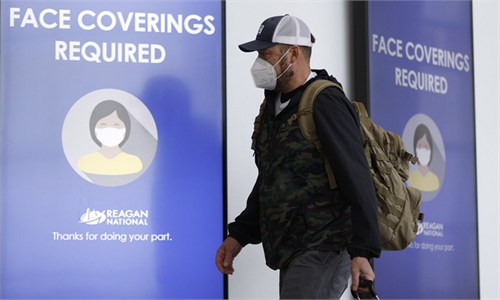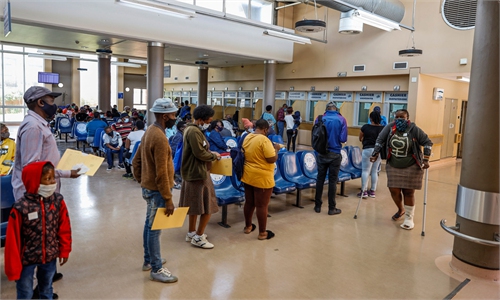The coronavirus variant discovered in South Africa can "break through" Pfizer/BioNTech's COVID-19 vaccine to some extent, a real-world data study in Israel found, though its prevalence in the country is low and the research has not been peer reviewed.

The study, released on Saturday, compared almost 400 people who had tested positive for COVID-19, 14 days or more after they received one or two doses of the vaccine, against the same number of unvaccinated patients with the disease. It matched age and gender, among other characteristics.
The variant in South Africa, B.1.351, was found to make up about 1 percent of all the COVID-19 cases across all the people studied, according to the study by Tel Aviv University and Israel's largest healthcare provider, Clalit. But among patients who had received two doses of the vaccine, the variant's prevalence rate was eight times higher than those unvaccinated -5.4 percent versus 0.7 percent.
This suggests the vaccine is less effective against the variant in South Africa, compared with the original coronavirus and a variant first identified in Britain that has come to comprise nearly all COVID-19 cases in Israel, the researchers said.
"We found a disproportionately higher rate of the variant in South Africa among people vaccinated with a second dose, compared to the unvaccinated group. This means that variant in the South Africa is able, to some extent, to break through the vaccine's protection," said Tel Aviv University's Adi Stern.
The researchers cautioned, though, that the study only had a small sample size of people infected with the variant in South Africa because of its rarity in Israel.

People visit a shopping mall in the Israeli coastal city of Netanya on February 21. Photo: VCG
The study, released on Saturday, compared almost 400 people who had tested positive for COVID-19, 14 days or more after they received one or two doses of the vaccine, against the same number of unvaccinated patients with the disease. It matched age and gender, among other characteristics.
The variant in South Africa, B.1.351, was found to make up about 1 percent of all the COVID-19 cases across all the people studied, according to the study by Tel Aviv University and Israel's largest healthcare provider, Clalit. But among patients who had received two doses of the vaccine, the variant's prevalence rate was eight times higher than those unvaccinated -5.4 percent versus 0.7 percent.
This suggests the vaccine is less effective against the variant in South Africa, compared with the original coronavirus and a variant first identified in Britain that has come to comprise nearly all COVID-19 cases in Israel, the researchers said.
"We found a disproportionately higher rate of the variant in South Africa among people vaccinated with a second dose, compared to the unvaccinated group. This means that variant in the South Africa is able, to some extent, to break through the vaccine's protection," said Tel Aviv University's Adi Stern.
The researchers cautioned, though, that the study only had a small sample size of people infected with the variant in South Africa because of its rarity in Israel.




